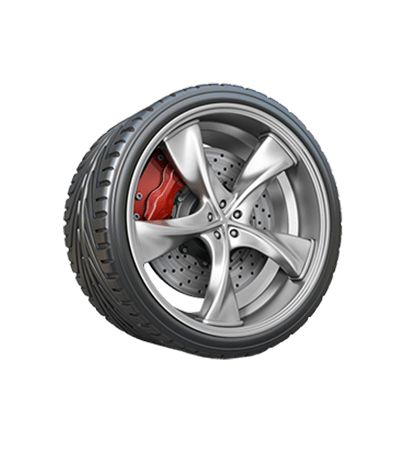Tips for Fixing Sliding Door Rollers Easily and Effectively
Repairing Sliding Door Rollers A Comprehensive Guide
Sliding doors are a popular choice for many homeowners due to their space-saving design and aesthetic appeal. However, like any other component in a home, they can suffer from wear and tear over time, particularly the rollers that allow the door to glide smoothly. If you've noticed that your sliding door is sticking, wobbling, or not opening at all, it may be time to repair or replace the rollers. This article will guide you through the process of repairing sliding door rollers effectively.
Understanding the Components
Before diving into the repair process, it's essential to understand the basic components of a sliding door. At the core of the operation are the rollers, which are located at the bottom of the door. These small wheels allow the door to move along a track. The effectiveness of the sliding door largely depends on the condition of these rollers. Common issues include dirt buildup, worn-out wheels, or misalignment, all of which can impede the function of the door.
Tools and Materials Needed
Before starting the repair project, gather the necessary tools and materials 1. Screwdriver A Phillips or flathead screwdriver, depending on your door screws. 2. Pliers Useful for removing stubborn screws or adjusting components. 3. Replacement Rollers If your rollers are damaged beyond repair, new ones are essential. 4. Dry Cloth or Vacuum For cleaning the track and rollers. 5. Lubricant A silicone-based lubricant helps keep rollers moving smoothly.
Step-by-Step Repair Process
1. Assess the Problem Start by examining the sliding door and its rollers. If the door is hard to slide, listen for grinding noises, or notice wobbling, it’s a clear indicator that something is wrong with the rollers.
2. Remove the Door To access the rollers, you may need to remove the entire sliding door from its track. Usually, this can be done by lifting the door up and out of the track. You might need a second person to help, as sliding doors can be heavy and cumbersome.
3. Inspect the Rollers With the door removed, closely inspect the rollers. Look for cracks, flat spots, or excessive wear and tear. If they are in poor condition, replacement is necessary.
repairing sliding door rollers

4. Clean the Track and Rollers Using a dry cloth or a vacuum, clean out any dirt or debris from the track. A clean track will enhance the performance of the new or repaired rollers. If there's any old lubricant, consider wiping that away too before applying new lubricant.
5. Replace the Rollers If you're replacing the rollers, remove the old ones by unscrewing them from the door. Attach the new rollers by aligning them with the existing holes and securing them with screws. Ensure they spin freely without obstruction.
6. Lubricate the Rollers and Track After installing the new rollers, apply a silicone-based lubricant to both the rollers and the track. This will reduce friction and facilitate smooth operation.
7. Reinstall the Door Carefully lift the sliding door back into the track. Ensure it is properly aligned and can slide with ease. If the door feels off-balance, adjust the rollers to fix any misalignment.
8. Test the Door Finally, slide the door back and forth to check for smooth operation. If it still sticks or wobbles, recheck the alignment and ensure that all screws are tightened properly.
Preventive Maintenance
Once you have successfully repaired your sliding door rollers, it’s crucial to perform regular maintenance to prolong their life. Clean the track and rollers every few months and apply lubricant as needed. Regular maintenance not only ensures smooth operation but also prevents future costly repairs.
Conclusion
Repairing sliding door rollers may seem daunting, but with the right tools and a bit of patience, it is certainly doable. Always remember to assess the condition of the rollers and the track, as neglecting these can lead to further damage. By following the steps outlined in this guide, you can restore your sliding door to optimal condition, ensuring it remains a functional and beautiful part of your home for years to come.
-
Wrought Iron Components: Timeless Elegance and Structural StrengthNewsJul.28,2025
-
Window Hardware Essentials: Rollers, Handles, and Locking SolutionsNewsJul.28,2025
-
Small Agricultural Processing Machines: Corn Threshers, Cassava Chippers, Grain Peelers & Chaff CuttersNewsJul.28,2025
-
Sliding Rollers: Smooth, Silent, and Built to LastNewsJul.28,2025
-
Cast Iron Stoves: Timeless Heating with Modern EfficiencyNewsJul.28,2025
-
Cast Iron Pipe and Fitting: Durable, Fire-Resistant Solutions for Plumbing and DrainageNewsJul.28,2025
-
 Wrought Iron Components: Timeless Elegance and Structural StrengthJul-28-2025Wrought Iron Components: Timeless Elegance and Structural Strength
Wrought Iron Components: Timeless Elegance and Structural StrengthJul-28-2025Wrought Iron Components: Timeless Elegance and Structural Strength -
 Window Hardware Essentials: Rollers, Handles, and Locking SolutionsJul-28-2025Window Hardware Essentials: Rollers, Handles, and Locking Solutions
Window Hardware Essentials: Rollers, Handles, and Locking SolutionsJul-28-2025Window Hardware Essentials: Rollers, Handles, and Locking Solutions -
 Small Agricultural Processing Machines: Corn Threshers, Cassava Chippers, Grain Peelers & Chaff CuttersJul-28-2025Small Agricultural Processing Machines: Corn Threshers, Cassava Chippers, Grain Peelers & Chaff Cutters
Small Agricultural Processing Machines: Corn Threshers, Cassava Chippers, Grain Peelers & Chaff CuttersJul-28-2025Small Agricultural Processing Machines: Corn Threshers, Cassava Chippers, Grain Peelers & Chaff Cutters












